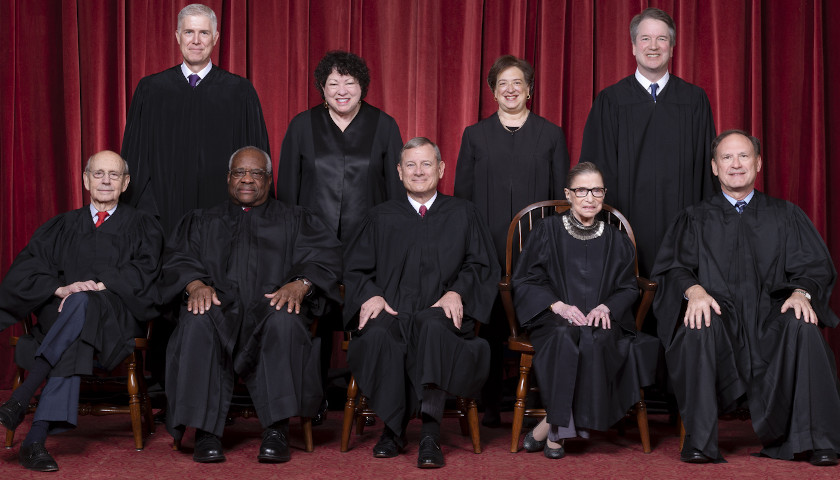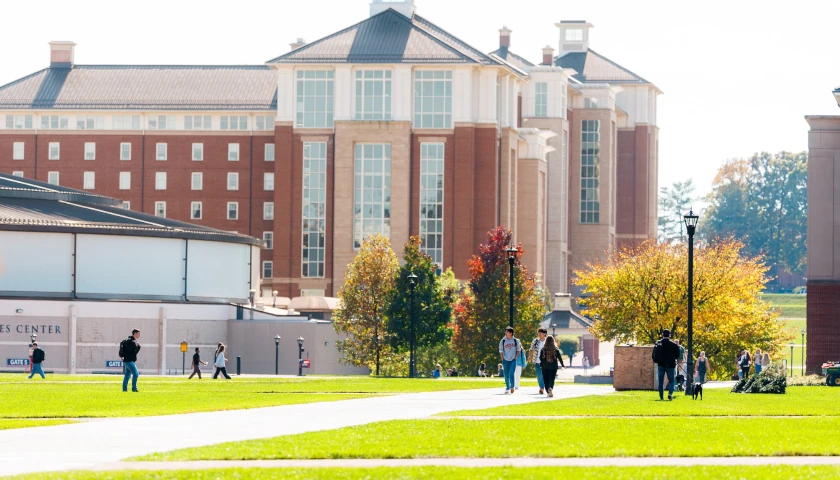In a ruling that shocked conservatives and religious liberty advocates, the Supreme Court, in a 6-3 vote, ruled Monday that a key provision of the Civil Rights Act of 1964 protects gays, lesbian and transgender people from discrimination in employment.
The court held that a key provision of the Civil Rights Act of 1964 known as Title VII that bars job discrimination because of sex, among other reasons, encompasses bias against LGBT workers.
“An employer who fires an individual for being homosexual or transgender fires that person for traits or actions it would not have questioned in members of a different sex,” Justice Neil Gorsuch wrote for the court. “Sex plays a necessary and undisguisable role in the decision, exactly what Title VII forbids.”
The Gorsuch and Chief Justice John Roberts joined the court’s four liberals in the majority.
Justices Samuel Alito, Brett Kavanaugh and Clarence Thomas dissented.
“The Court tries to convince readers that it is merely enforcing the terms of the statute, but that is preposterous,” Alito wrote in the dissent. “Even as understood today, the concept of discrimination because of ‘sex’ is different from discrimination because of ‘sexual orientation’ or ‘gender identity.'”
Kavanaugh wrote in a separate dissent that the court was rewriting the law to include gender identity and sexual orientation, a job that belongs to Congress. Still, Kavanaugh said the decision represents an “important victory achieved today by gay and lesbian Americans.”
As our friends at NewsMax reported, Monday’s decision is not likely to be the court’s last word on a host of issues revolving around LGBT rights, as Justice Gorsuch noted, lawsuits are pending over transgender athletes’ participation in school sporting events, and courts also are dealing with cases about sex-segregated bathrooms and locker rooms, a subject that the justices seemed concerned about during arguments in October. Employers who have religious objections to employing LGBT people also might be able to raise those claims in a different case, Gorsuch said.
“But none of these other laws are before us; we have not had the benefit of adversarial testing about the meaning of their terms, and we do not prejudge any such question today,” he wrote.
The problem with Gorsuch’s opinion is that Kavanaugh was right, and rather than reading the law as written, the Supreme Court has once again usurped the responsibilities of Congress to legislate on these matters.
As the Editors of Utah’s Deseret News wrote, ”…this remains a nation of laws. Process matters, and the Constitution clearly defines which of the three branches of government makes laws. It isn’t the judicial branch. If Title VII of the 1964 Civil Rights Act should outlaw discrimination because of sexual orientation, Congress — whose members represent the people who elected them — should make that change.”
And the fact that Congress has not made that law is not a defect, it is a feature of the legislative process, suggesting that public support for such a law does not exist.
The Desert News Editorial Board went on to say:
Justice Samuel Alito, one of the three dissenters in this case, spelled out one of the structural weaknesses that occur when judges write law. Their decisions don’t consider the many nuances a representative body would have to confront, nuances necessary for protecting the rights of all. The political system forces elected representatives to confront these and hammer out compromises in order to craft legislation that will receive enough votes to become law.
In this case, Alito said, one of the nuances concerns religious freedom. Monday’s decision “will threaten freedom of religion, freedom of speech, and personal privacy and safety,” he wrote. “No one should think that the Court’s decision represents an unalloyed victory for individual liberty.”
Specifically, he said the decision could affect a religious institution’s freedom to hire people who share and practice the institution’s faith. Citing concerns raised in briefs filed by a number of religious organizations, he noted that a church’s teachings on extra-marital sex or sex-change operations may be lost if its schools are forced to hire someone who believes and practices otherwise. “Yet today’s decision may lead to Title VII claims by such teachers and applicants for employment,” he said.
He added that the ruling could affect the interpretation of gender-equity laws in cases that arise from a college’s policy against assigning dormitory roommates who are of the opposite biological sex.
The court’s majority opinion, written by Trump-appointee Neil Gorsuch, dismissed those concerns.
“We are also deeply concerned with preserving the promise of the free exercise of religion enshrined in our Constitution; that guarantee lies at the heart of our pluralistic society,” he wrote.
But those are not new concerns, he added. Other laws already provide protections. The court has even ruled that the First Amendment can’t interfere with a religious institution’s relationship with its ministers. Monday’s ruling didn’t concern these things.
Then he added this ominous line:
“But how these doctrines protecting religious liberty interact with Title VII are questions for future cases too.”
In other words, more court decisions changing laws.
From our perspective, what Justice Gorsuch and the Supreme Court majority have just done is force every employer and religious institution in America to put up with any form of bizarre acting out or manifestation of mental illness. So long as it is cloaked in the newly bestowed protection of gender dysmorphia or homosexuality, employers now cannot rid themselves of disruptive or off-putting employees for fear of being accused of sexual discrimination.




